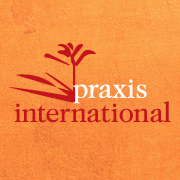To implement AIR, the law enforcement agency or agencies in your community need to enter into a written agreement with your program. Adapting the working agreement (see Templates) typically involves several meetings between the community-based advocacy program and law enforcement to negotiate the details of who informs the advocacy program of the case, what information is provided, and when.
Once the working agreement is finalized, individual responding officers will need training on the protocol that directs them to do the following when on-scene:
- inform the survivor (without the offender’s knowledge) that the advocacy program will call for follow-up conversation and information
- inform the survivor that they do not have to talk to the advocate, but they will call
- collect phone numbers where the survivor can be reached, clarifying whether it is safe to leave messages or talk with someone else who may answer the phone
Then, either during the response or as soon as possible after the response, the law enforcement agency provides the information collected from the survivor to the community-based advocacy program, as well as information about the offender, language access needs, and a basic overview of the incident.
Notes:
- If not already in place, law enforcement agencies are required by federal law and should develop a proactive, robust language access plan; ideally, one that provides detailed protocols for responding to language access needs[1].
- State laws related to data privacy vary. Consult with your state/tribal/territory coalition and local interagency team members to establish the safest and most effective way to facilitate advocacy contact with the survivor. Further, immigrant survivors are also entitled to federal immigration law VAWA confidentiality protections.
[1] It is not adequate to expect the community-based advocacy program to provide interpreter services for criminal legal system agencies, unless adequately compensated for providing that service.
